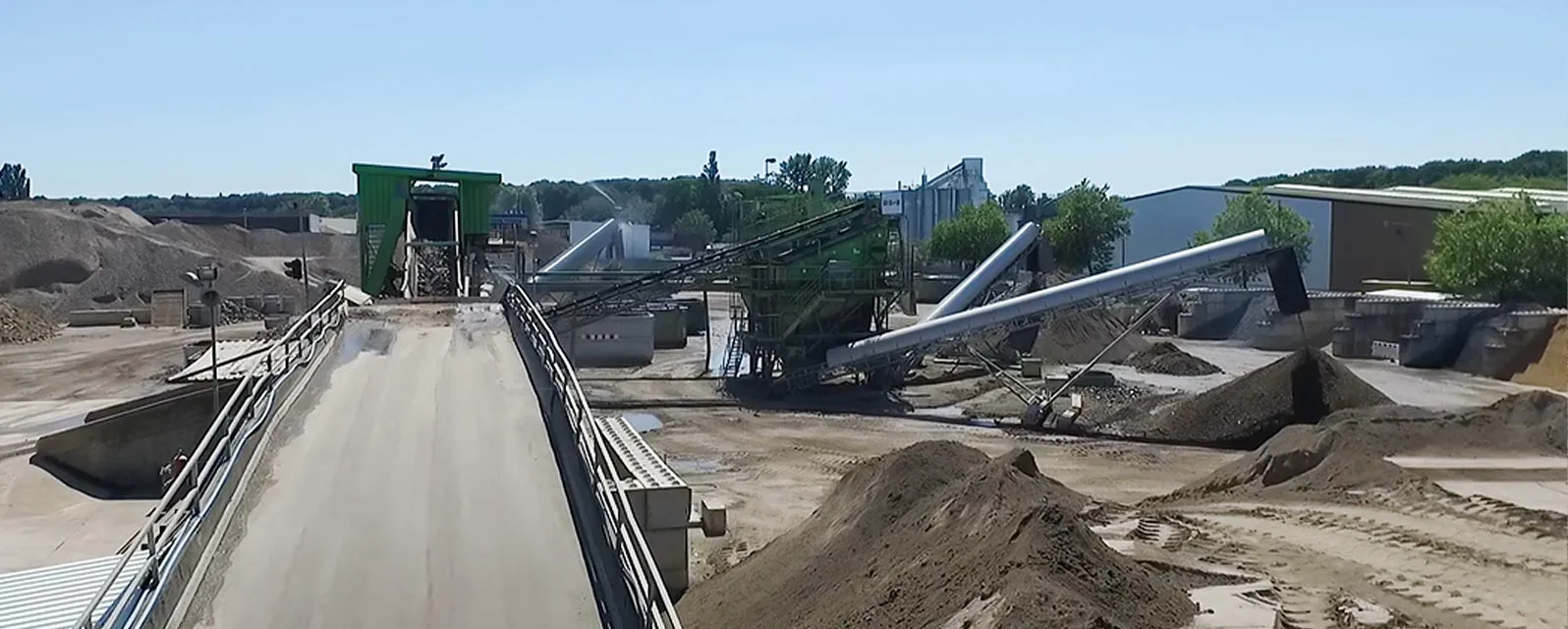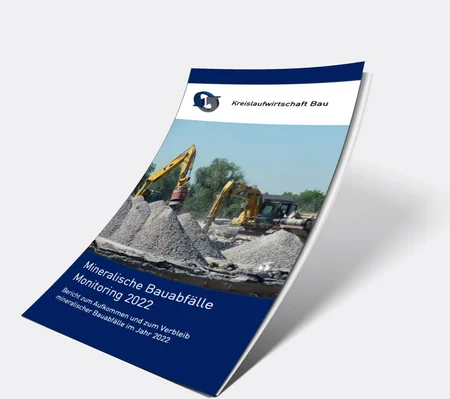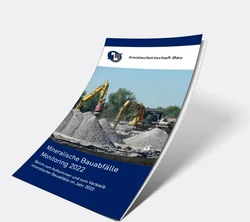Recycled aggregates contribute to resource protection
In terms of structural properties and annual production volumes, recycled aggregates such as REMEXIT belong to the most important secondary building materials in the construction industry. They replace about 13% of the annual quantities of aggregates required across the construction sector in Germany. No other alternative building material makes such a relevant contribution to conserving resources. However, we are also aware of the challenges arising from environmental protection requirements. The REMEXIT initiative therefore also serves the purpose of education and training. In addition to this, we support the use of secondary aggregates with our MEB Services.
Input materials: construction and demolition waste

Building material recycling is the processing of secondary mineral resources such as waste from remediation, construction and demolition of buildings and roads for reuse as recycled aggregates. The German construction industry's "Kreislaufwirtschaft Bau" initiative publishes, based on official statistics, data on the volume and origin of these materials every two years.
The life cycle of mineral construction waste
According to the current monitoring report of the Kreislaufwirtschaft Bau initiative, approx. 55.2 million tonnes of construction waste and 17.1 million tonnes of road rubble were generated in Germany in 2022, which were processed into recycled aggregates. The recycling rate was 81.7% for construction waste and 93.0% for road rubble.
Bundesverband Baustoffe - Steine und Erden e. V. (Federal Association of Building Materials - Stones and Earths) as editor of the report also reports that the total demand for aggregates in the German construction industry in 2022 amounted to 564.1 million tonnes. With a share of 13.3%, recycled aggregates cover a significant part of this demand and thus contribute to the conservation of resources for gravel, sand and natural stones.


Sustainable advantages: save costs, protect resources!
Recycled aggregates produced from construction and demolition waste are - except for special qualities such as pure concrete rubble - generally much cheaper to purchase than natural building materials. The cost savings for a construction project can be relevant and are influenced by factors such as the transport distance between the construction site and the nearest possible supply plant, existing capacities of natural and recycled aggregates, the local competitive structure and the technical requirements for the building materials.


Development since 2006

The "Kreislaufwirtschaft Bau" initiative
"Kreislaufwirtschaft Bau" is an initiative of the construction materials industry, the construction industry and the waste disposal industry, which has been involved in promoting closed material cycles in the construction sector for 20 years. The focus is on mineral construction waste, the largest material flow within the German waste balance.


